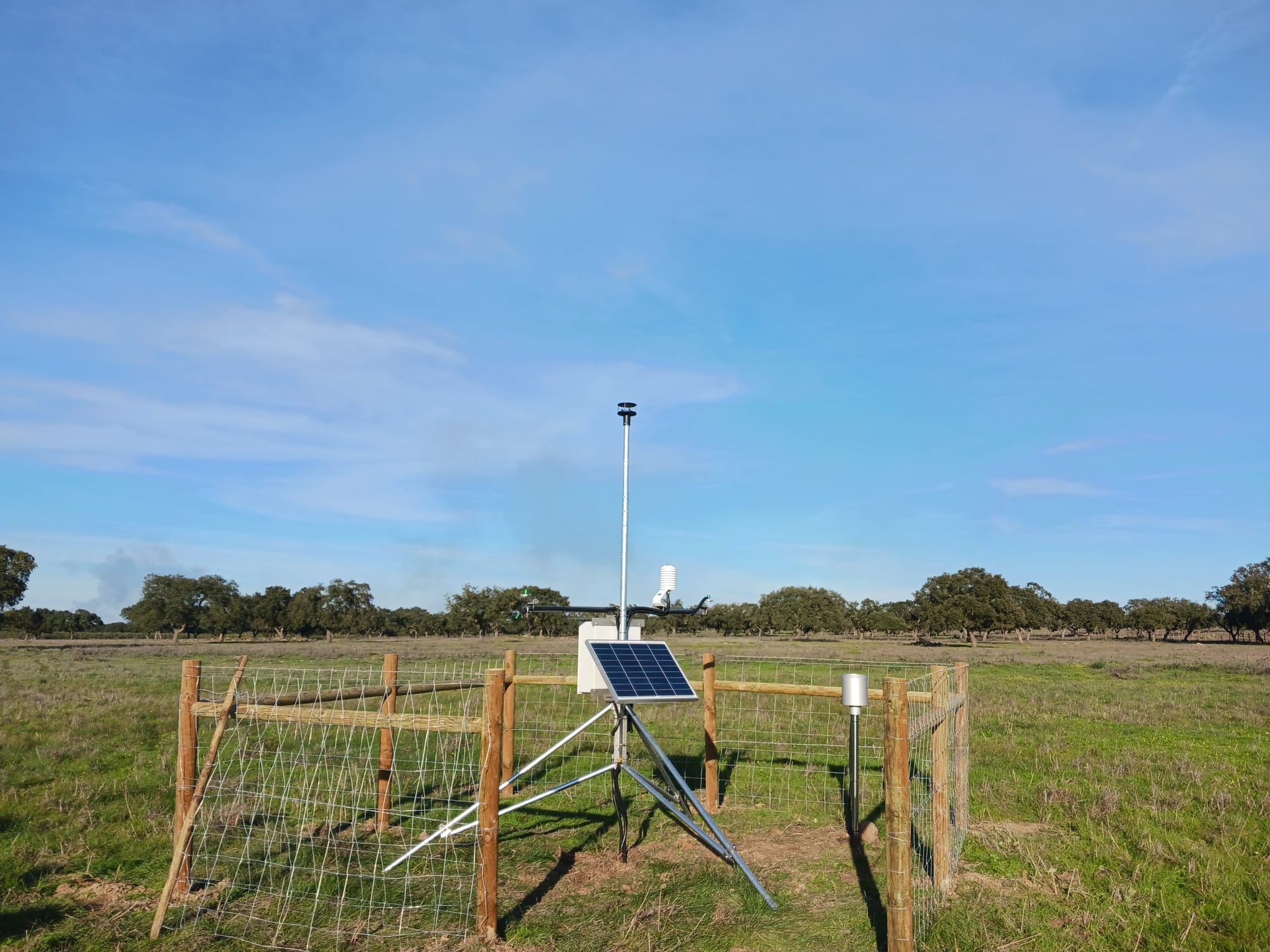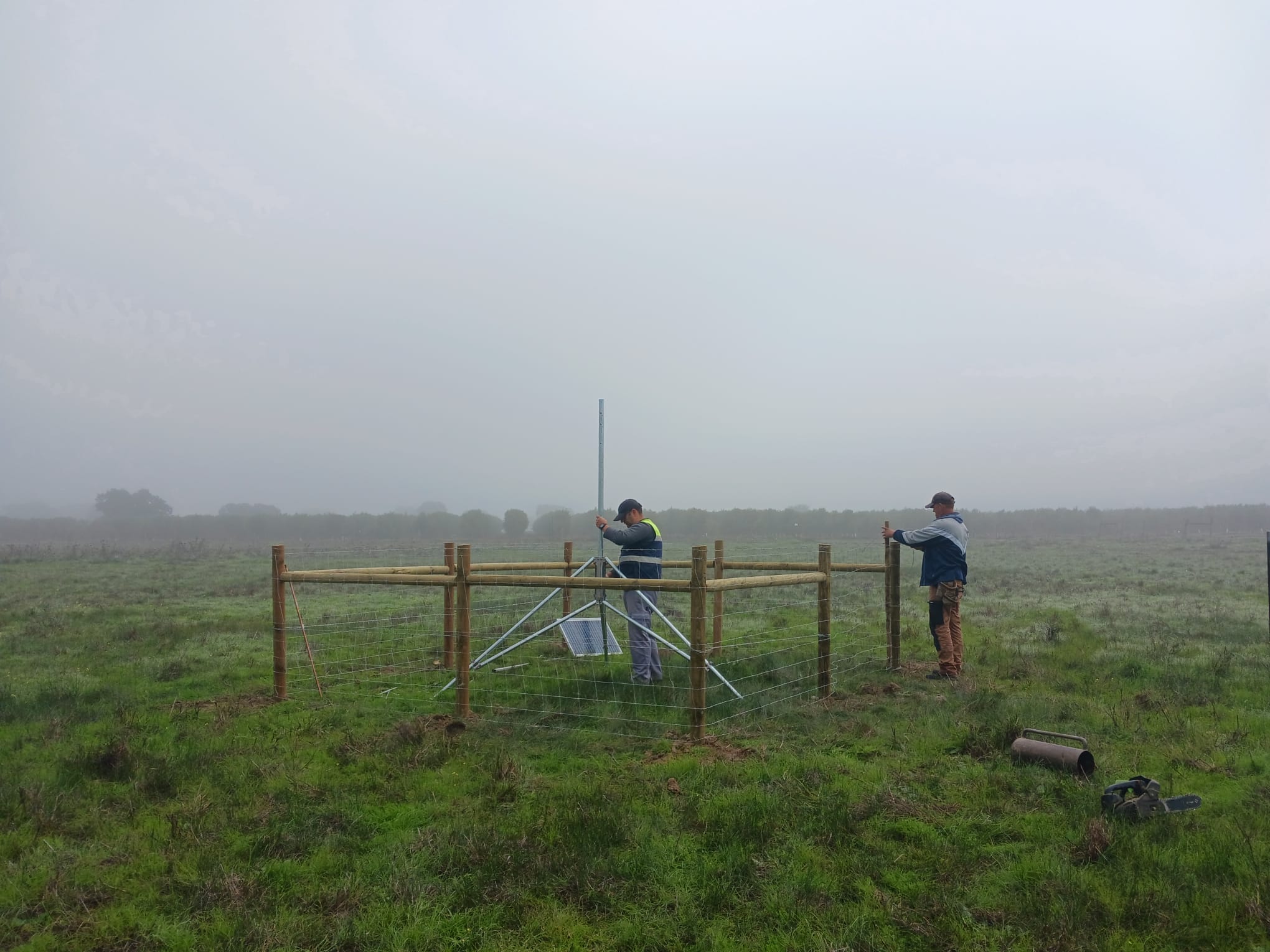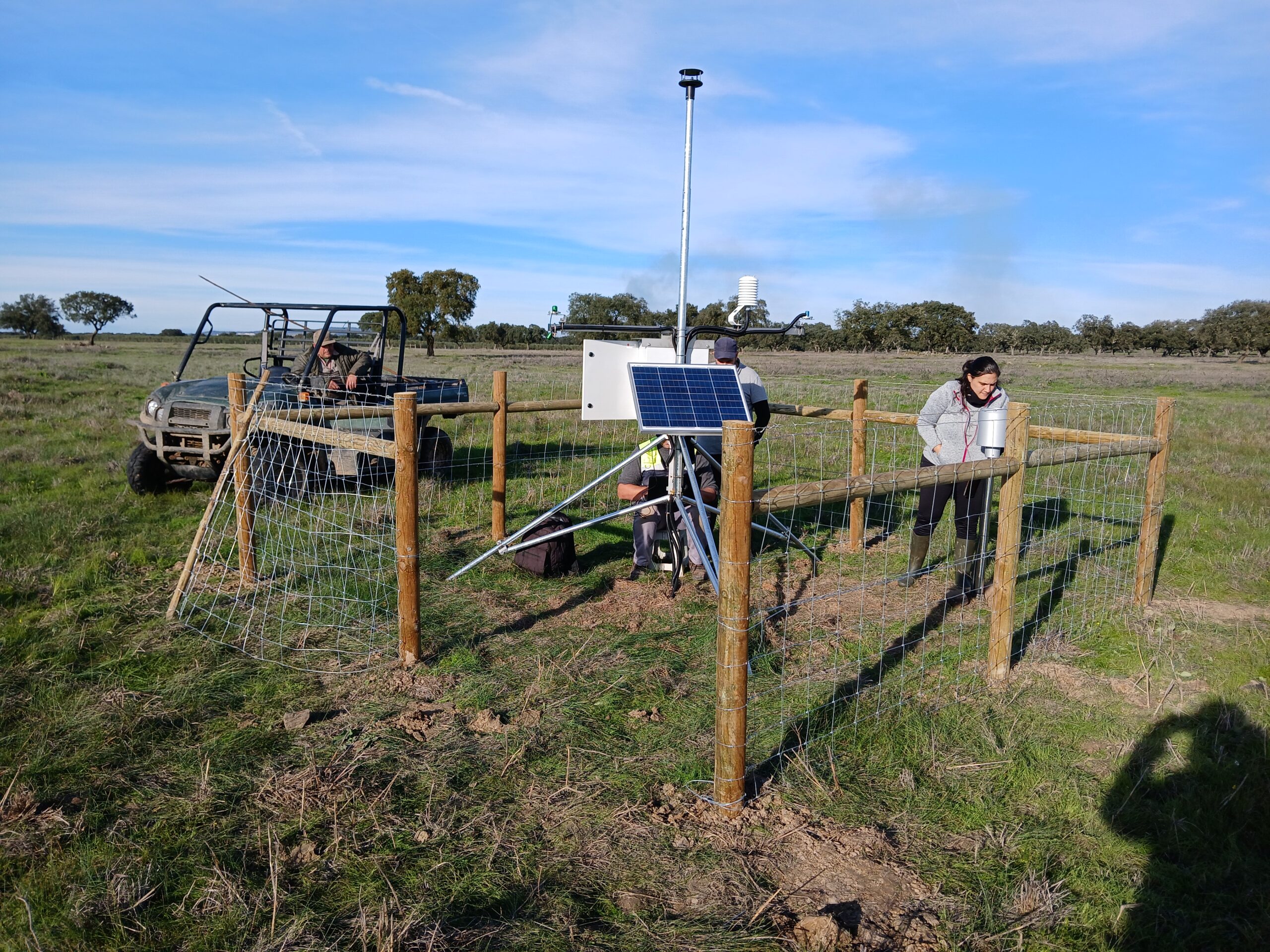EDIA, Empresa de Desenvolvimento e Infraestructuras do Alqueva, the Portuguese partner in the Germ of Life project, has installed a meteorological station in the national pilot area. This development aligns with the project’s objectives to promote cooperation between Euro-Mediterranean countries for the prevention and management of drought risks.
The pilot area chosen in Portugal is a Mediterranean temporary pond, a habitat of high ecological value classified as a priority for conservation in Annex I of the EU Habitats Directive. The farm where the pilot area is located is in the parish of Faro do Alentejo in the municipality of Cuba do Alentejo. This type of ecosystem, which is highly sensitive to climate change, depends directly on the availability of water to sustain its biodiversity.
The installation of the meteorological station plays a fundamental role, enabling the as: Temperature. Precipitation. Soil humidity. Vegetation condition.
This data is crucial to understanding the impacts of drought and implementing effective management, mitigation and conservation strategies to protect this habitat in the face of climate change.

Station Technology and Functionalities
The meteorological station installed as part of the Germ of Life project is equipped with the following technologies:
-
Meteorological sensors: They measure temperature, solar radiation, rainfall, wind speed and direction, which are essential for calculating drought indicators;
-
NDVI (Normalised Difference Vegetation Index) sensors: Evaluate the health of vegetation, providing data on the impact of water stress;
-
Soil moisture sensors: Monitor water availability in real time, providing fundamental insights into maintaining ecological balance.

Commitment to Sustainability
With this initiative, EDIA reaffirms its commitment to the success of the Germ of Life project and to its mission of tackling environmental challenges, guaranteeing ecological resilience through technology and international cooperation.
This action strengthens the capacity to adapt to climate change, preserving priority habitats and promoting a more sustainable future for the Euro-Mediterranean region.
The Germ of Life project promotes a collaborative approach between six countries: Portugal, Spain, France, Italy, Greece and Cyprus. Together, these countries share indicators calculated from common data sources, establishing a harmonised definition of drought risk. This joint effort results in more effective early warning systems and more robust strategies to face the challenges posed by climate change.


